Saving the North Atlantic right whale - North America
Don't fail our whaleSong of the Whale
Song of the Whale
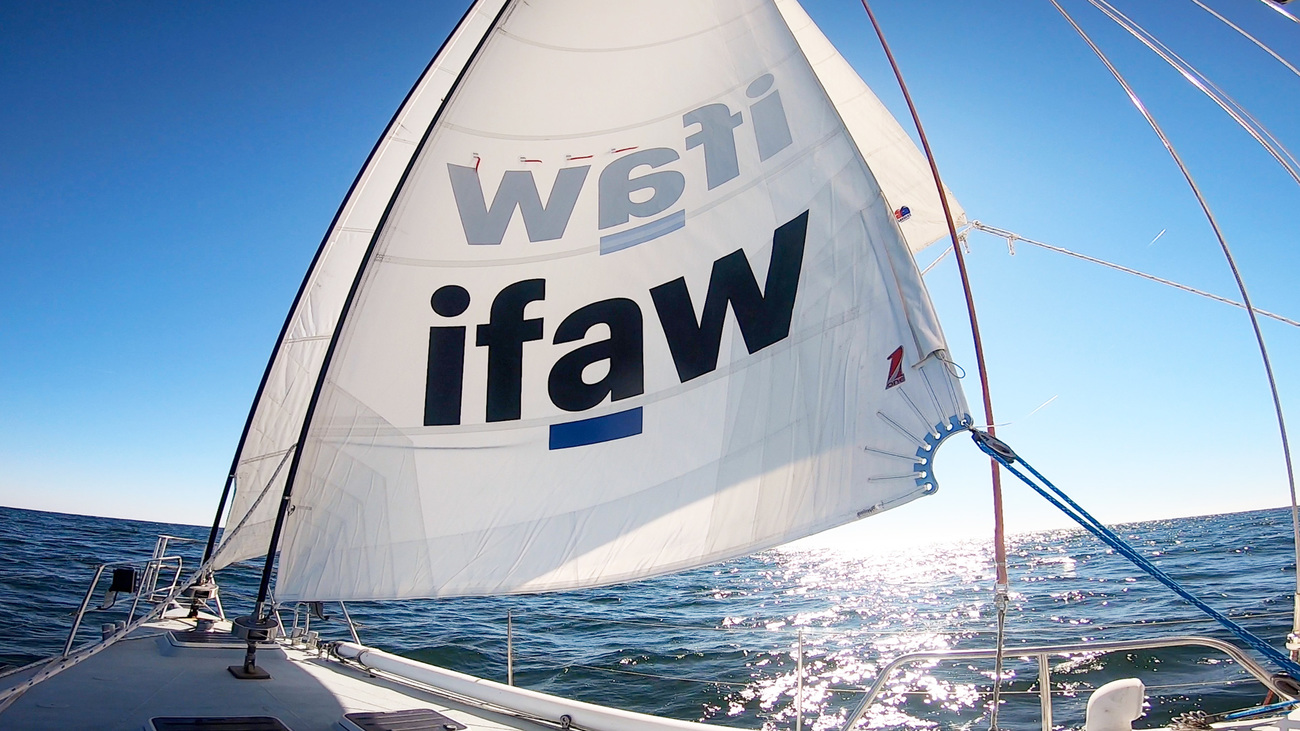
Research expedition to save North Atlantic right whales from extinction
North Atlantic right whales are on the brink of extinction. With about 370 remaining, every whale is vital to the species’ survival.
Whale migration patterns are changing. North Atlantic right whales are now seen—and killed—in areas heavily used by fishing and shipping industries.
IFAW commissioned the Song of the Whale to study North Atlantic right whales through shipping corridors and fishing grounds during this year’s migration. From January through August, Song of the Whale will follow mothers and their calves along the eastern coast of the United States.
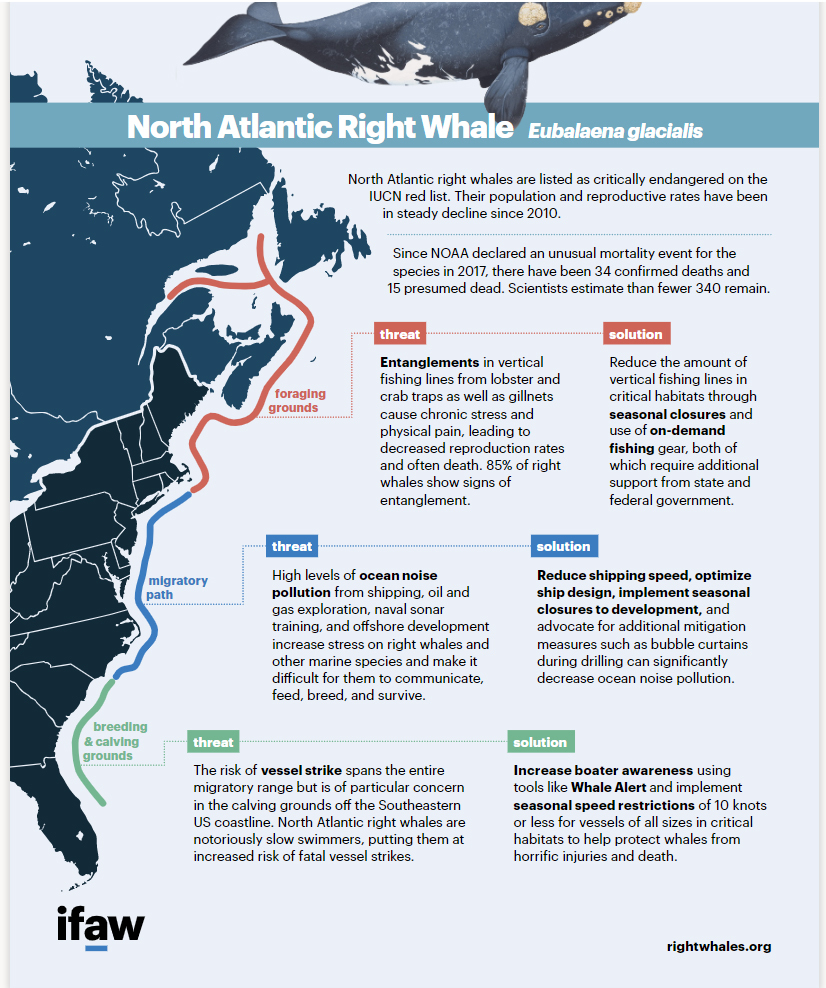
What is threatening North Atlantic right whales?
Vessel strikes and entanglement in outmoded fishing gear result in fatal injuries and increased risk of drowning or slowly starving to death.
Because human actions are pushing these whales to extinction, we can—and must—make changes that will protect and conserve them.
There are about only 380 left ...
Help us save the critically endangered North Atlantic right whale from extinction.
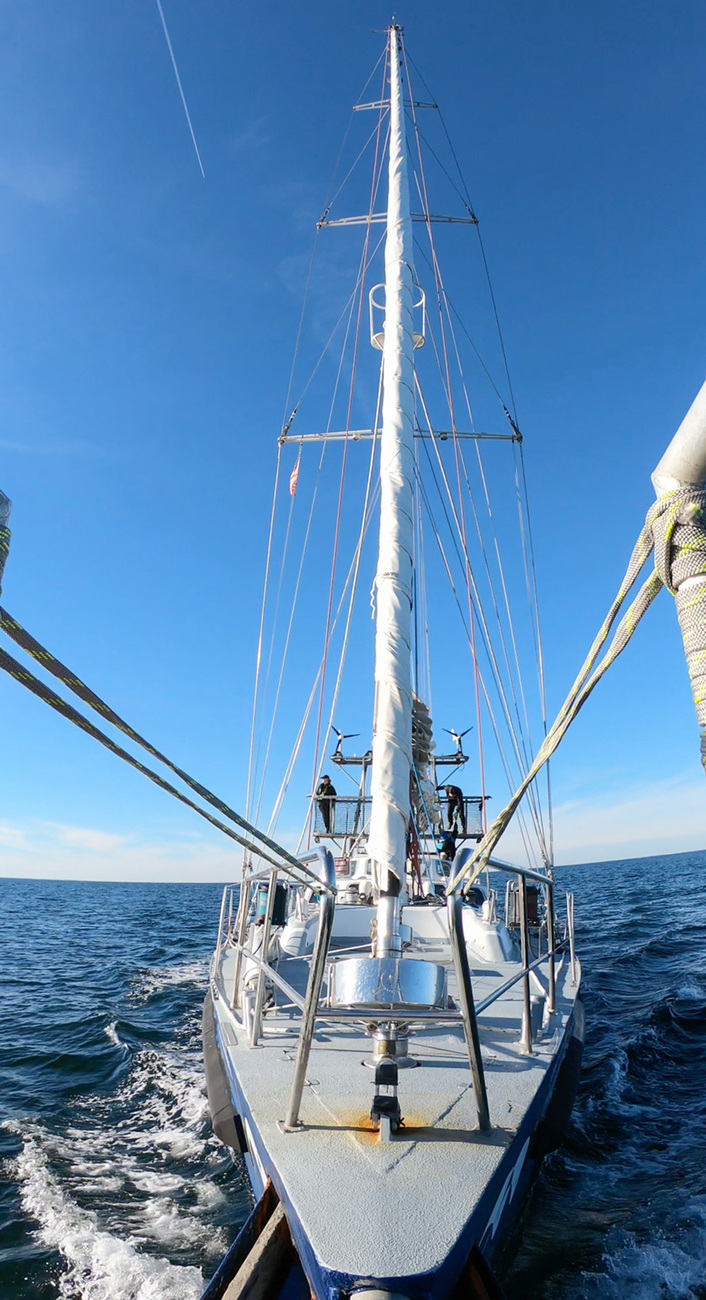
Fast facts about Song of the Whale
- 70-foot sailboat and floating research station
- commissioned by IFAW in 2002 to replace the original Song of the Whale, built in 1987
- quiet and non-invasive, with features to reduce noise pollution including vibration-dampening engine mounts, a five-bladed propeller similar to that of a stealth submarine, and state-of-the-art exhaust systems
- able to monitor whales in inclement weather, at night, and in difficult-to-reach areas
- can deploy to port entrances and shipping channels to “babysit” mothers and their calves, protecting them from getting struck in these dangerous areas
- has visited 25+ countries to study marine mammals, raise awareness, and conduct outreach to local communities
- granted to Marine Conservation Research International in 2014 to maximize its capabilities
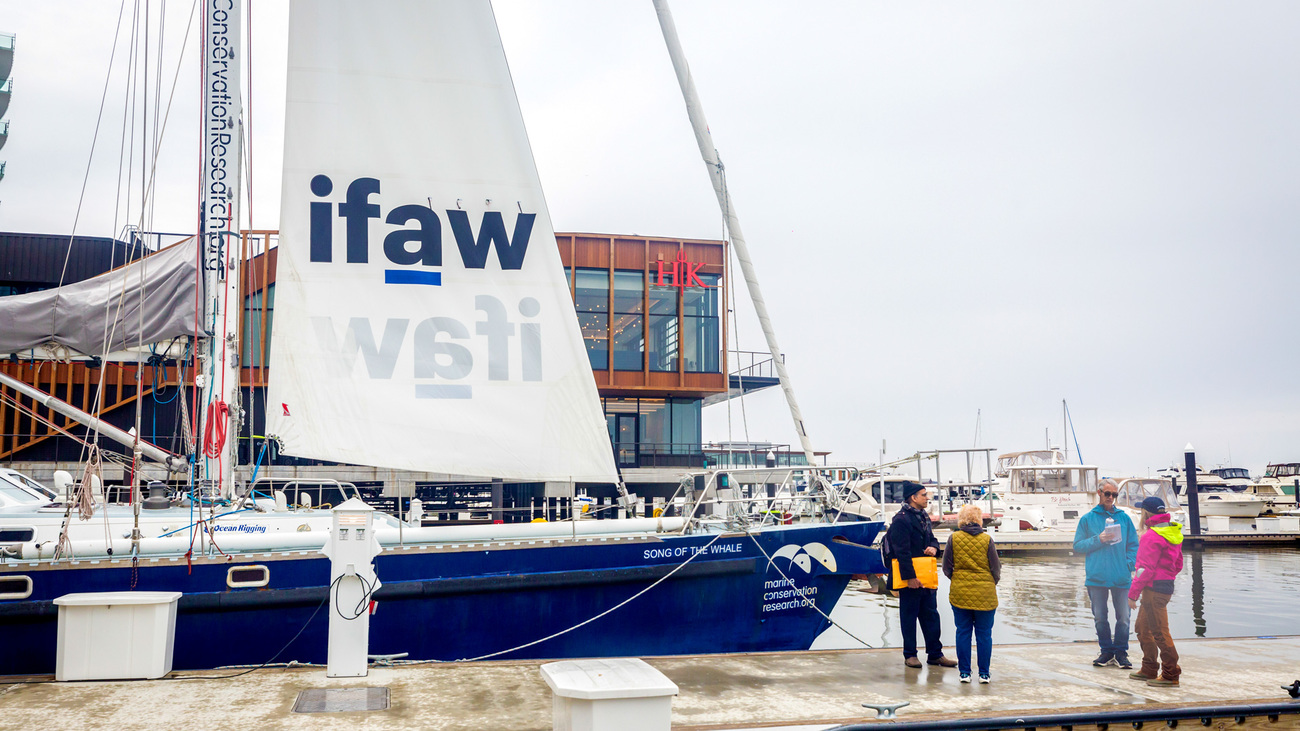
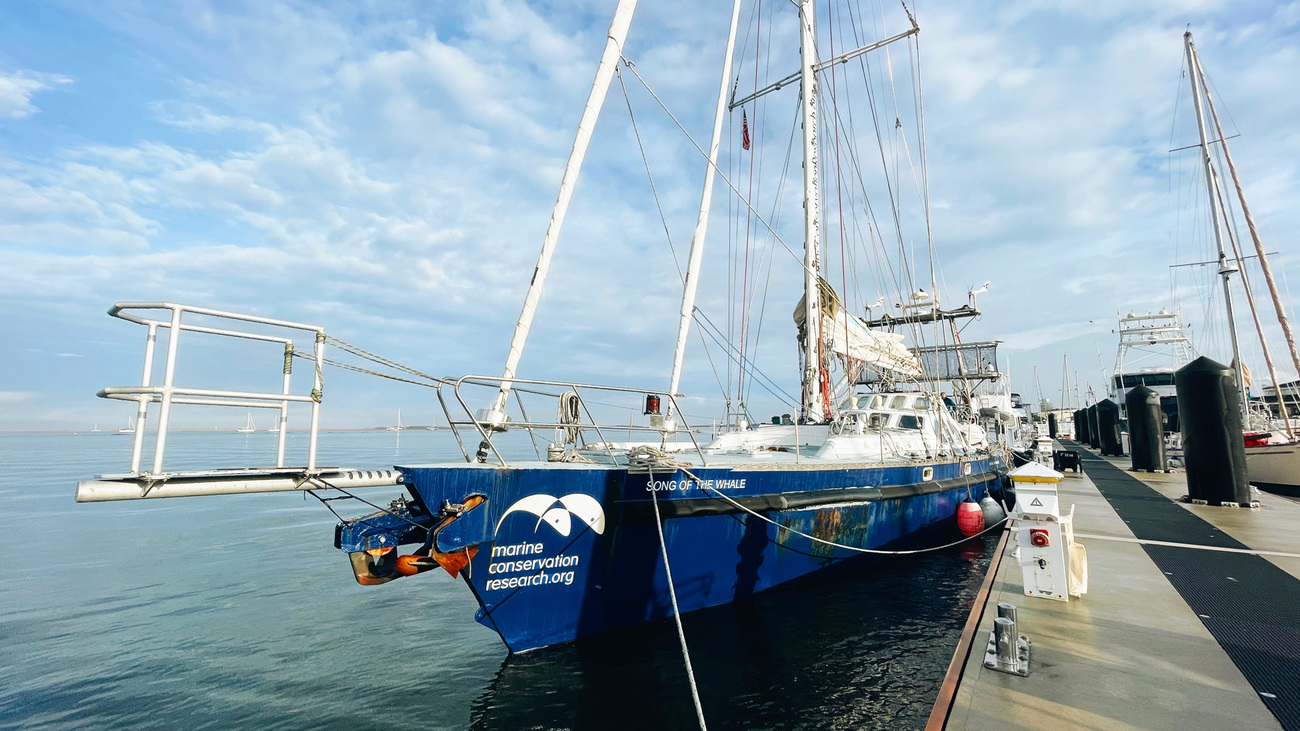
How will research conducted on the Song of the Whale help?
The team’s research will help us understand how and where to reduce the life-threatening risks these whales face every day by focusing on:
- round-the-clock surveying to collect data on where the whales are and their vocalizations, health, habitat use, and threats, including underwater noise, vessel strikes, and entanglement risk
- human actions near the mothers and calves—for example, the speeds and noise produced by vessels that operate in the areas
Follow North Atlantic right whales during their epic migration.
Stay up to date on Song of the Whale’s journey and IFAW’s work around the world.How can you help IFAW save the North Atlantic right whale from extinction?
With further insights into North Atlantic right whales and the risks they face, we can create targeted plans to reduce those risks. Those plans could include advocating for policy changes—such as mandatory speed restrictions for vessels during certain crucial weeks—or funding new technologies.
For example, IFAW collaborates with the fishers and manufactures who are pioneering innovative gear technology to better advocate for a practical solution that keeps mariners and fishers on the water while also protecting right whales.
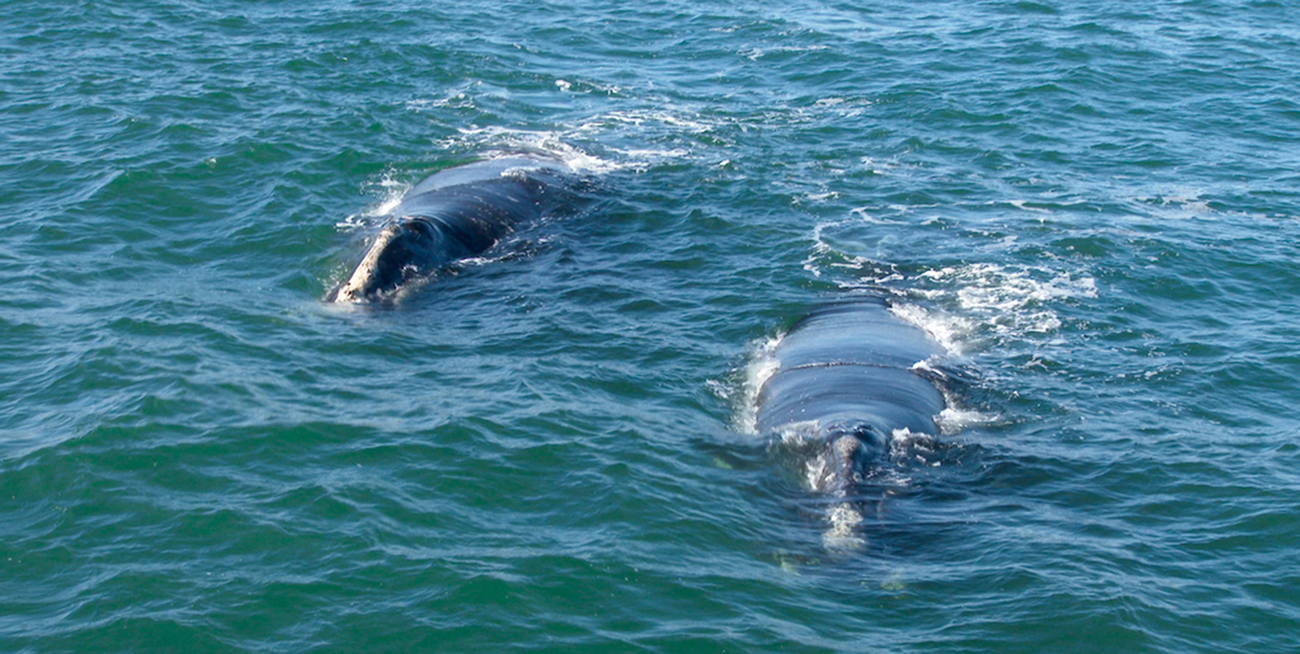
IFAW-led research and initiatives like this help to advance the field of marine mammal conservation. But we can’t do it alone.
Related content
Blog
who’s who? how researchers identify right whales from photos
read moreBlog
rare encounters with marine giants
read moreBlog
researchers track North Atlantic right whales with specialized equipment
read morePress releases
critically endangered North Atlantic right whale found dead in Virginia
read moreBlog
meet the crew tracking North Atlantic right whales aboard Song of the Whale
read moreUpdates
responders disentangle a North Atlantic right whale off the coast of Georgia
read more